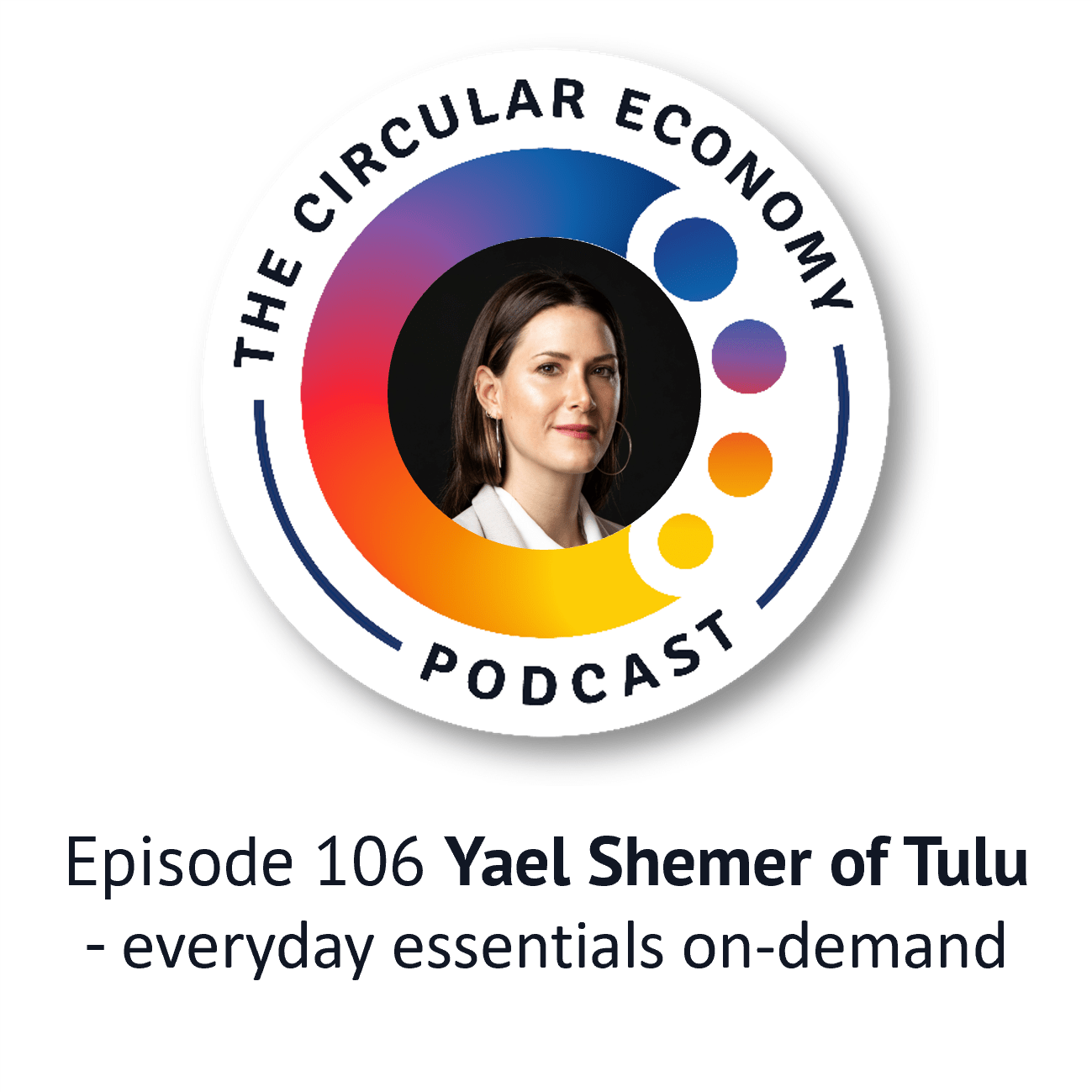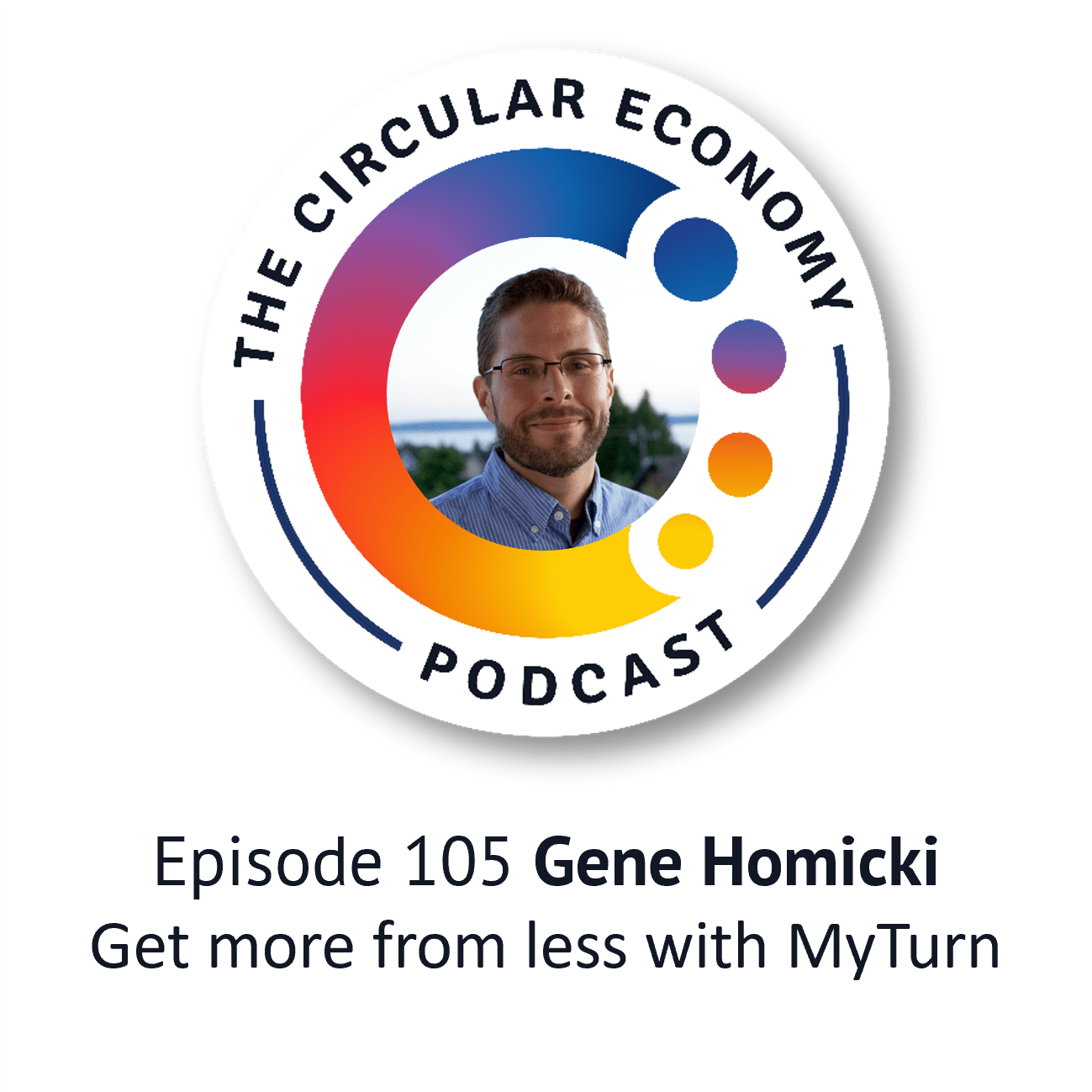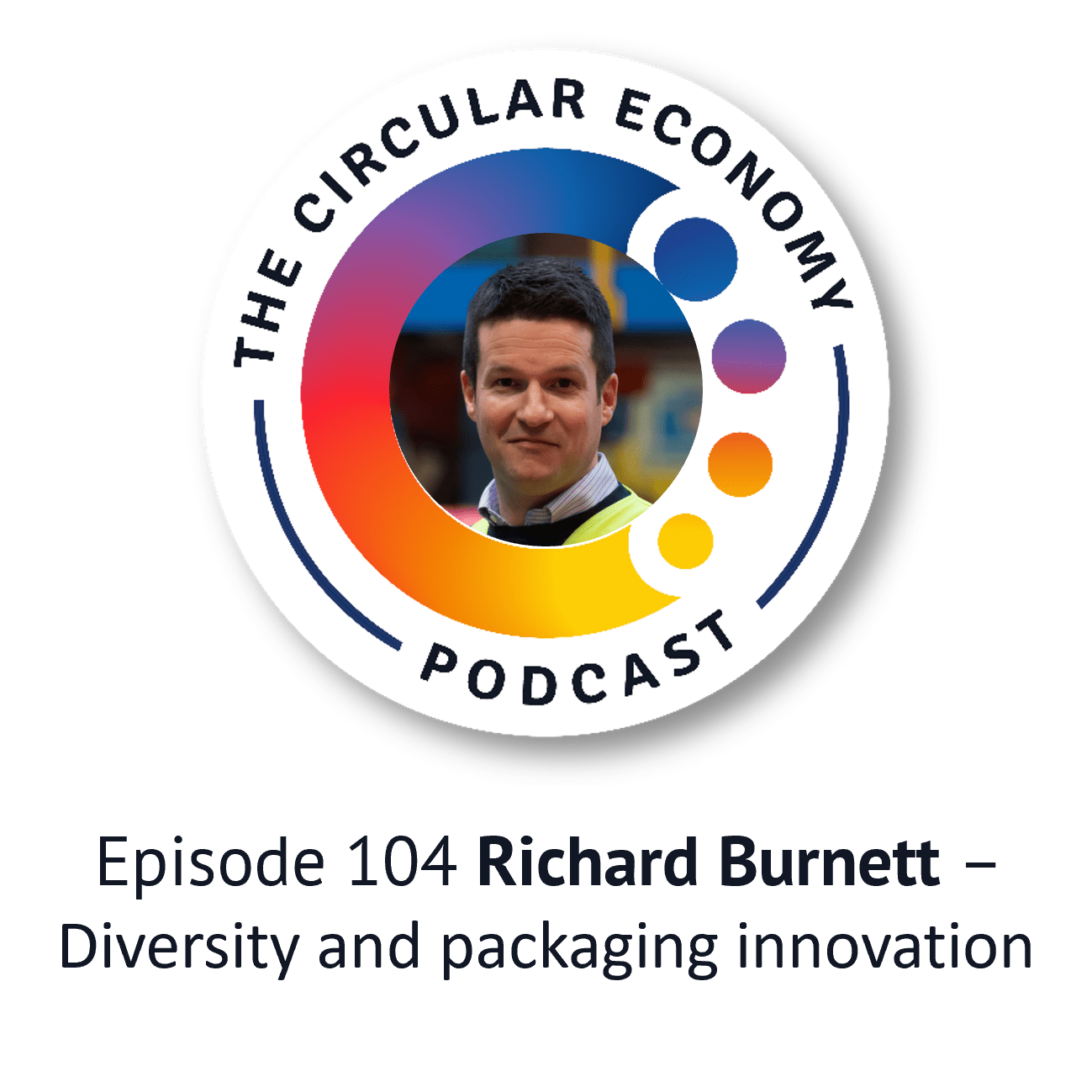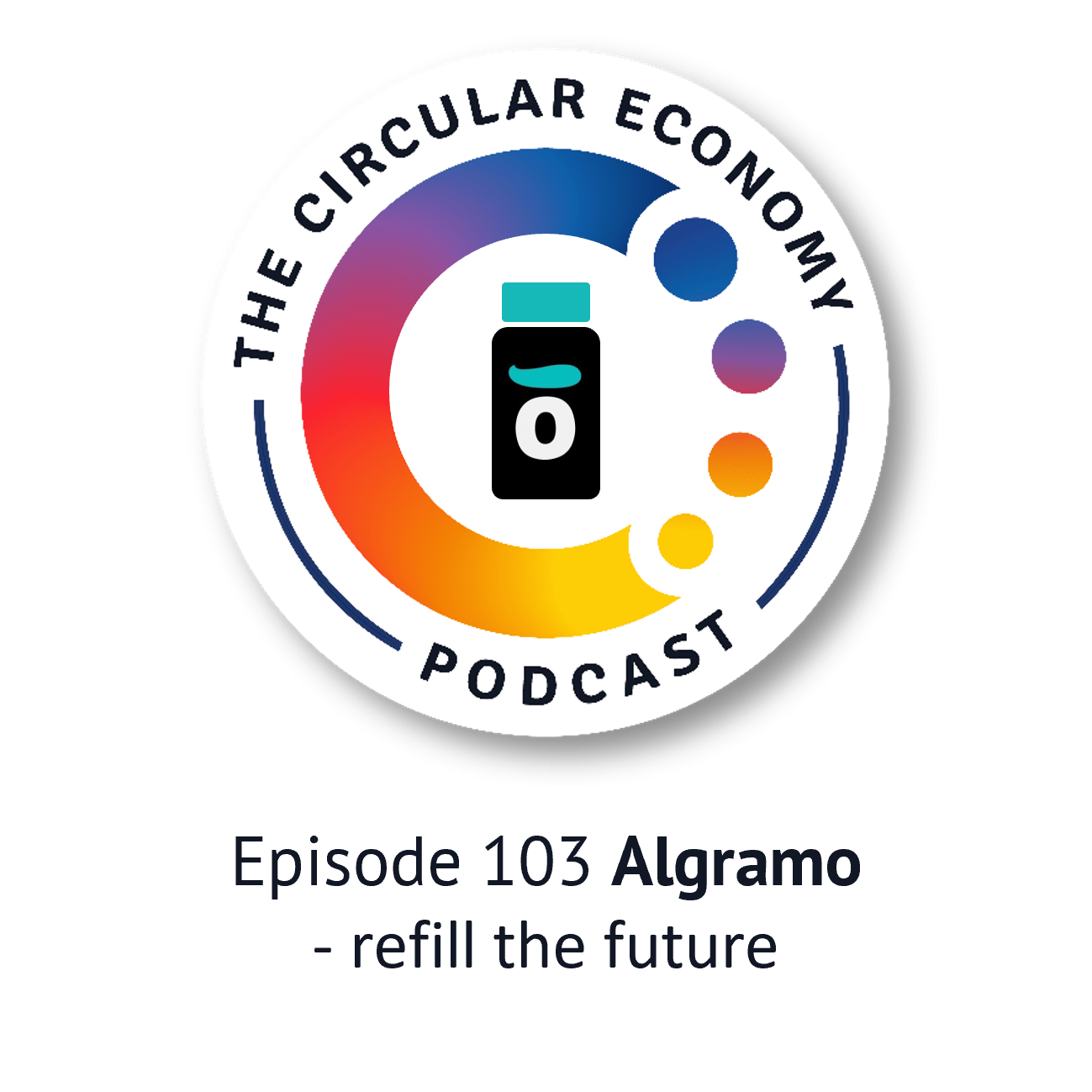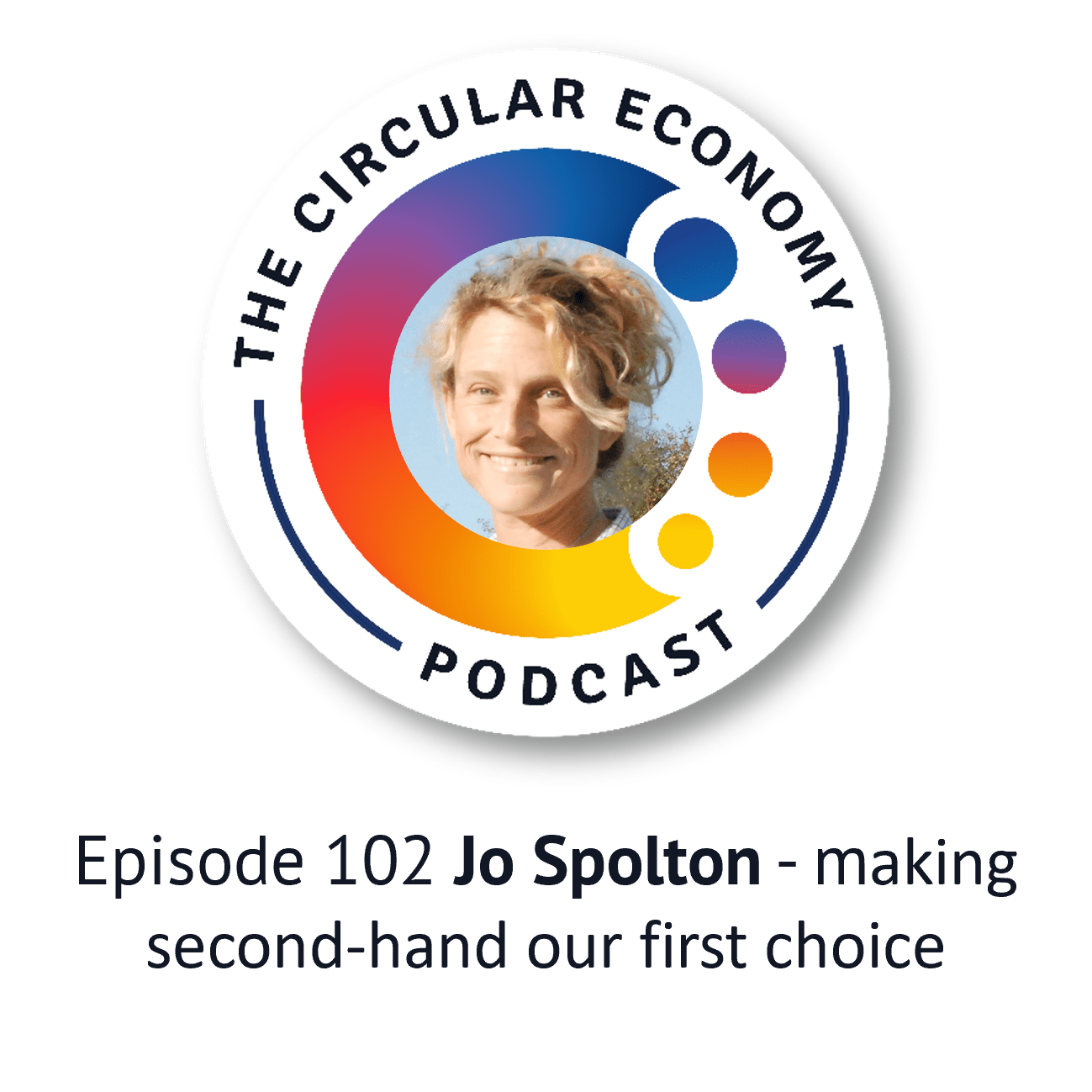Podcast: Play in new window | Download
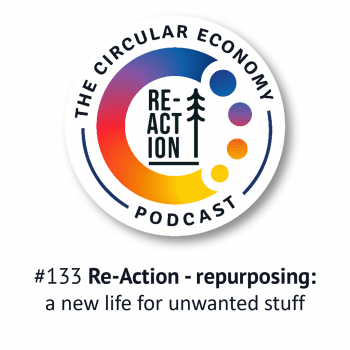
This is the 4th and final episode in the special 5th Anniversary mini-series featuring the Re-Action Collective, and we’re focusing on repurposing – using creativity and craft skills to breathe new life into unwanted outdoor gear, clothing and workwear.
We’ll hear from the founders of two small repurposing businesses:
First, Jen Dickinson, founder of Dirtbags Climbing, an upcycling workshop in the English Lake District, which turns retired outdoor textiles into hand-made bags.
And secondly, Beccy Evans, founder of Utilifolk, who gives things fresh appeal and new life by re-working unwanted garments that are no longer fit for their original use, and makes new pieces from preloved and remnant textiles.
Ironically, nearly every outdoor gear brand uses sophisticated marketing to hijack our brain chemicals, encouraging us to buy yet more stuff to do the things we love, to excel and enjoy them. And yet, those same things, when discarded, are destroying the very essence of the places and living things we love so much.
We discuss the ethos and design principles for their businesses, why we need to avoid sucked into the ‘fast-fashion’ and ‘compartmentalising’ approaches of brands that want to sell more stuff, and how repurposing can help people create their own identity, instead of looking like they’re wearing other people’s stuff.
Rebecca Heaps, founder of Tentshare, who we met in Episode 131, says “when we buy secondhand, the earth breaths a sigh of relief” – and I think that applies to repurposed things, too. Everything we do to keep our clothes, tools and equipment alive is a way to sustain life on earth – for us, and for the future of our living world. And of course, emotional engagement and well-crafted kit helps Re-Action’s mission to make the outdoors more affordable and accessible.
International speaker, author and strategic advisor, Catherine Weetman helps people discover why circular, regenerative and fair solutions are better for people, planet – and prosperity.
Catherine’s award-winning book: A Circular Economy Handbook: How to Build a More Resilient, Competitive and Sustainable Business includes lots of practical examples and tips on getting started.
Stay in touch for free insights and updates…
Read on for more on our guest and links to the people, organisations and other resources we mention.
Don’t forget, you can subscribe to the podcast series on iTunes, Google Podcasts, PlayerFM, Spotify, TuneIn, or search for “circular economy” in your favourite podcast app. Stay in touch to get free insights and updates, direct to your inbox…
You can also use our interactive, searchable podcast index to find episodes by sector, by region or by circular strategy. Plus, there is now a regular Circular Economy Podcast newsletter, so you get the latest episode show notes and links delivered to your inbox on Sunday morning, each fortnight. The newsletter includes a link to the episode page on our website, with an audio player. You can subscribe by clicking this link to update your preferences.
Links we mention in the episode:
Catherine’s work:
- Circular Economy Podcast on LinkedIn: linkedin.com/showcase/circular-economy-podcast/
- Circular Economy Podcast website: circulareconomypodcast.com
- Catherine Weetman on LinkedIn: https://www.linkedin.com/in/catherine-weetman-9419107/
- A Circular Economy Handbook: How to Build a More Resilient, Competitive and Sustainable Business – buy from any good bookseller, or direct from the publisher Kogan Page, which ships worldwide (free shipping to UK and US) https://www.koganpage.com/CircEcon2
- Interactive podcast index https://www.rethinkglobal.info/circular-economy-podcast-index/
- Rethink Global www.rethinkglobal.info
- Sign up to get the podcast player and shownotes for each new episode emailed to your inbox
Links for our guests:
Beccy Evans – Utilifolk and Feral Crayon:
Dirtbags
Books, people and organisations we mentioned
- Catherine’s blog: Less, but better: a design for life
- Re-Action Collective website: https://re-action-collective.org/
- Re-Action Collective on Instagram: https://www.instagram.com/re_action_collective/
- Re-Action Collective on LinkedIn: https://www.linkedin.com/company/re-action-collective/
- Let My People Go Surfing, by Yvon Chouinard: https://www.patagonia.com/shop/books
- Dieter Rams – ten principles for ‘good design’
- Rebecca Heaps, founder of Tentshare https://www.tentshare.co.uk/
Podcast episodes on Repurposing
- #109 Janina Nieper – Connecting new designs to leftover materials. Janina Nieper is an architect and designer with Furnify, helping clients create circular spaces by connecting new designs to leftover materials. https://www.rethinkglobal.info/109-janina-nieper-connecting-new-designs-to-leftover-materials/
- #92 Elmar Stroomer – circular textile solutions in Africa – Elmar Stroomer founded Africa Collect Textiles, which collects locally used textiles across Africa, for reuse, recycling and upcycling, creating jobs and sharing the benefits. https://www.rethinkglobal.info/92-elmar-stroomer-circular-textile-solutions-in-africa/
- #71 Rob Thompson – scaling up circular marine plastic solutions. Rob Thompson tells us how Odyssey Innovations’ brilliant circular model for marine plastics is expanding further afield. https://www.rethinkglobal.info/episode-71-rob-thompson-scaling-up-circular-marine-plastic-solutions/
- #68 Kresse Wesling – Elvis & Kresse – luxury products from discarded materials. Kresse Wesling, CBE of Elvis and Kresse, rescues and transforms discarded materials, including decommissioned fire hose, into innovative lifestyle products. https://www.rethinkglobal.info/episode-68-kresse-wesling-elvis-kresse/
Guest bios:
Beccy Evans – Utilifolk and Feral Crayon
Beccy Evans says: UtiliFolk is my microbrand. Utilifolk is about prolonging the life of clothing that already exists and keeping textiles out of landfill. I re-work unwanted garments, and items no longer fit for their original use, to give them fresh appeal and new life. Everything I create has a functional utility edge. I often use military outdoor and other functional clothing as a basis for my re-makes. I use preloved and remnant textiles to add interest to reworked garments as well as to make new pieces from scratch.
Feral Crayon is my freelance apparel design consultancy; specialising in technical, outdoor, performance sports, and active lifestyle clothing. The cornerstones of my design practice are Function, Durability and Product Longevity.
Having worked in the industry for 20 years, I have a broad range of experience designing for a range of end uses. I cover all elements of the design process, and work with brands of all sizes. Previous clients include Finisterre, Salomon, Shackleton and Wolverine.
Jennifer Dickinson of Dirtbags Climbing
Jennifer Dickinson is the co founder of Dirtbags Climbing, an upcycling workshop in the Lake District where they hand make bags from retired outdoor textiles. She also heads Outdoor Gear for Good, a CIC project working with outdoor brands aiming to redistribute excess inventory of outdoor gear to those in need.
Dirtbags is a small Kendal based workshop who redirect textiles generated by the outdoor recreation industry from landfill. They upcycle outdoor gear (things like climbing rope, tents, wetsuits and waterproofs) into products made for the outdoors. They work with manufacturing offcuts and end of life products to make their bags as sustainable as possible.
Playlist: getting started with the circular economy…
Want to know more about the what the circular economy really is, and how it can help your business? Here’s a playlist to help you get to grips with the concept, how it creates value, and the common myths (spoiler alert – it’s much more than recycling!)
- #1 What is the circular economy: A quick intro to explain what the circular economy is and why it’s important. We explore how it helps create better products and services, and at the same time helps to make a better world. I break it down into my 5 circular economy components, helping you think about each part of your business.
- #2 The linear economy and your risk checklist: We dig a bit deeper into the way we do business now, the linear economy, and why that’s creating problems for business, society and our living planet. Also, we’ll look at the risks that emerge from those big-picture issues, and how they might affect your organisation.
- #90 Does circular mean it’s sustainable? Catherine Weetman is worried that companies are using circular economy solutions to grow their business (and their footprints).
- #101 Circular is better for people, planet and profit! How three simple strategies can help you get started with circular and regenerative solutions that are better for people, planet and profit.
- #120 Priorities are changing: people find life is better when we care for and share things – circular economy strategies make that better for business, too.
And here’s Catherine’s guide: What is the circular economy?
Want to dig deeper?
Why not buy Catherine’s award-winning book, A Circular Economy Handbook: How to Build a More Resilient, Competitive and Sustainable Business. This comprehensive guide uses a bottom-up, practical approach, and includes hundreds of real examples from around the world, to help you really ‘get’ the circular economy. Even better, you’ll be inspired with ideas to make your own business more competitive, resilient and sustainable.
Please let us know what you think of the podcast – and we’d love it if you could leave us a review on iTunes, or wherever you find your podcasts. Or send us an email…
Please let us know what you think of the podcast – and we’d love it if you could leave us a review on iTunes, or wherever you find your podcasts. Or send us an email…
Podcast music
Thanks to Belinda O’Hooley and Heidi Tidow, otherwise known as the brilliant, inventive and generous folk duo, O’Hooley & Tidow for allowing me to use the instrumentals from the live version of Summat’s Brewin’ as music for the podcast. You can find the whole track (inspired by the Copper Family song “Oh Good Ale”) on their album, also called Summat’s Brewin’. Or, follow them on Twitter.
